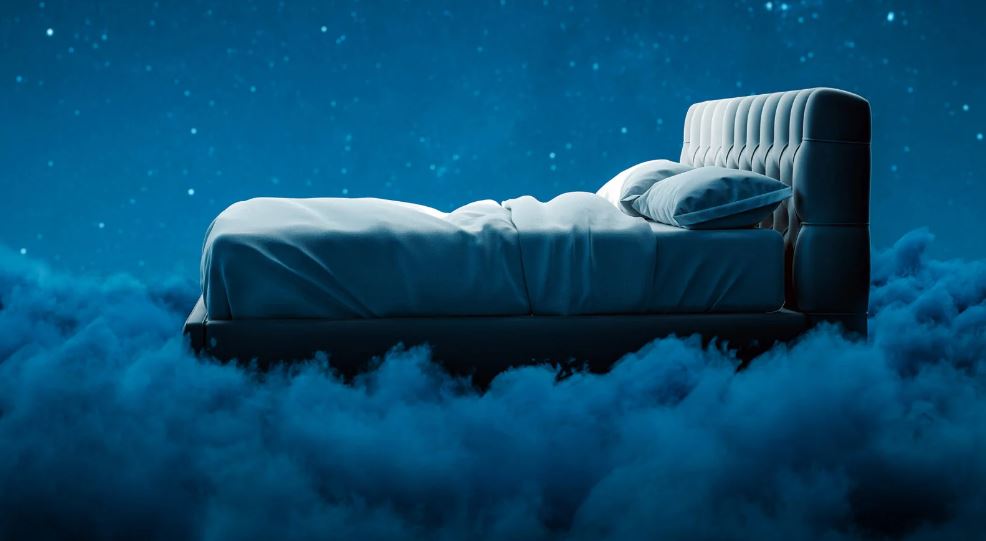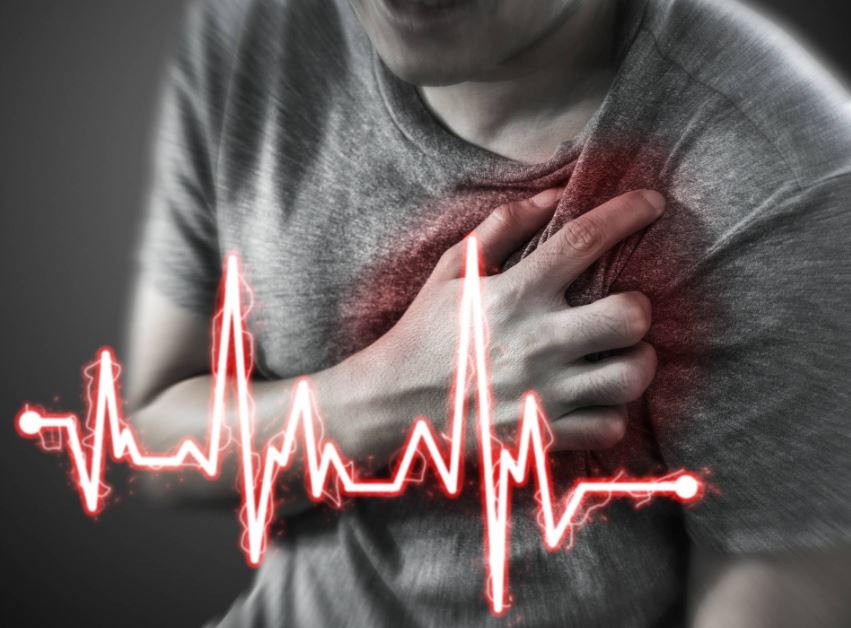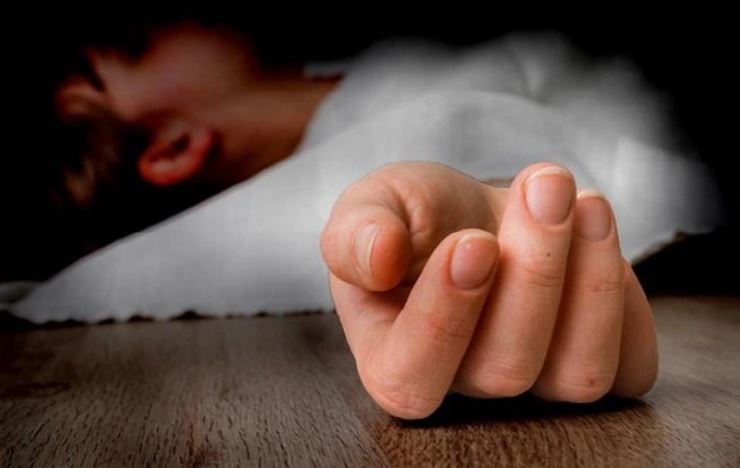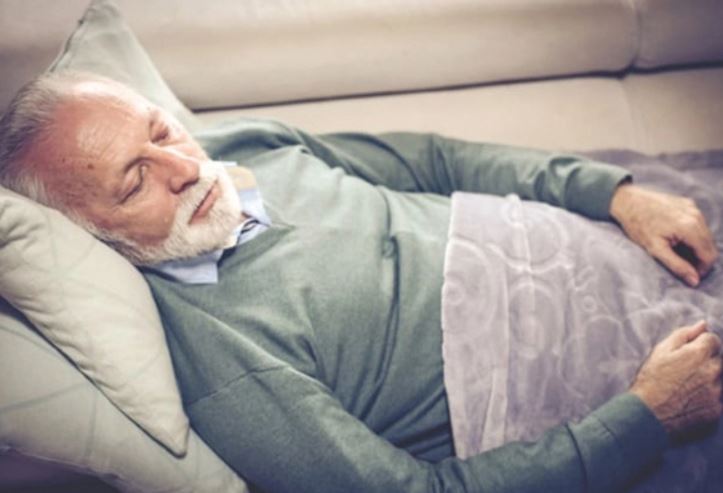Various reasons can lead to death, including cancer, traffic accidents, and food poisoning. However, it may be surprising to learn that numerous people die while sleeping, causing concern for many.
Don't worry; if you don't have a specific medical condition, you shouldn't be concerned because the likelihood of this happening is relatively low.

There are various reasons why people may experience death in their sleep, with concerns often focusing on three of our most important organs.
According to Dr. Milind Sovani, who is known as a consultant in respiratory medicine at Nottingham University Hospitals NHS Trust, he stated: 'Dying in your sleep is usually related to the heart, lungs, or brain.
According to Listverse, below are the causes that can cause people to die in their sleep.
1. Cardiac arrest
This phenomenon occurs when the sinoatrial node, the body's pacemaker, is damaged, indicating an issue with the EKG system. In some cases, patients may succumb within minutes due to a rapid reduction in blood flow to the brain. Notably, approximately 50% of victims have not previously exhibited any symptoms.

2. Heart attack
Heart disease occurs when the blood flow to the heart is blocked. The blood clot that forms can damage the heart muscle.
When a large amount of tissue is damaged, the heart is unable to pump blood throughout the body, which can lead to heart failure and death if left untreated. Sleeping people are often unable to require rapid medical intervention and, therefore, have a higher chance of passing away.
3. Poisoned by carbon monoxide
Carbon monoxide (CO) is a colorless, odorless gas commonly found in car exhausts, stoves, ovens, and fireplaces and cannot be detected without specialized equipment.

If enough carbon dioxide accumulates in a small space, carbon dioxide can poison people. Conscious victims often experience symptoms such as dizziness, weakness, headaches, and stomachaches. If they are sleeping, they can easily die before realizing something is wrong.
4. Sleep apnea due to central origin
This is a disorder that causes the patient to experience repeated episodes of interrupted breathing during sleep. Central sleep apnea has its origins in the central nervous system, where the brain fails to send proper electrical signals to the respiratory muscles that control breathing during sleep.
Central sleep apnea leads to a decrease in oxygen levels, sometimes dropping below the necessary threshold to sustain life. If the brain fails to awaken the body at this point, the condition can potentially be fatal.
5. Sudden, unexplained nocturnal death syndrome

Sudden unexplained nocturnal death syndrome (SUNDS) was first mentioned in a medical report in 1917. The report documented cases of unexplained deaths, often occurring in young individuals with good health.
In the Philippines, SUNDS is also known as "Bangungut", while in Hawaii, it is referred to as "Dream Disease". SUNDS is more prevalent in Southeast Asia, and the scientific community is still searching for the underlying cause of this mysterious syndrome.
6. Intracranial aneurysm
Essentially, an intracranial aneurysm is like a fragile, blood-filled balloon within the blood vessels of the brain. Over time, as blood is pumped through the arteries, the balloon-like structure expands under increasing pressure. Once it reaches a critical point, the balloon or blood vessel may rupture. Although the bleeding may occur only for a few seconds, the surrounding cells are damaged, indirectly increasing pressure within the skull. If the pressure becomes too high, it can result in the patient's death.
7. Enterovirus D68
Enterovirus D68 (EV-D68) was first identified in 1962. What is alarming about this type of virus is the wide range of symptoms it can cause, from mild to severe or even asymptomatic.

Doctors consider EV-D68 to be potentially more dangerous than Ebola. It leads to a series of serious respiratory problems, characterized by wheezing and sometimes accompanied by muscle weakness and spinal cord inflammation. EV-D68 can cause death even while the person is asleep.
8. Dry drowning
While everyone knows drowning can occur in water, the term "dry drowning" is relatively new. In simple terms, even when out of the water, the victim can still drown. A small amount of water can pass through the throat and enter the lungs, causing various issues. In some cases, respiratory problems may not manifest until hours or even days later, while the victim is asleep. It gradually depletes the oxygen within the body until the patient suffocates and dies.
9. Widowmaker heart attack
As the name suggests, a widowmaker heart attack is among the most dangerous and potentially fatal heart conditions. This condition involves severe blockage of the coronary arteries, leading to damage in the region of the heart muscle. When the heart is severely damaged and unable to pump blood, the patient will die.
10. Sleep apnea due to obstruction
This is the most common form of sleep apnea, occurring due to the obstruction of the airway when the throat muscles become relaxed. The muscles and tissues of the tongue, uvula, tonsils, and soft palate contribute to this condition.
In the United States, approximately 22 million people suffer from obstructive sleep apnea, but up to 80% of cases go undiagnosed, making it a silent killer. Obstructive sleep apnea is dangerous because it abruptly reduces the oxygen levels in the blood and can lead to sudden cardiac arrest in individuals already at risk of heart disease, heart failure, or stroke."






